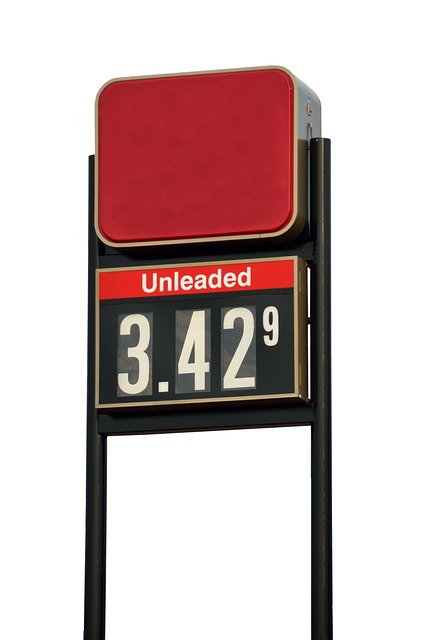The automotive industry shifts towards fuel-efficient vehicles driven by environmental concerns and cost savings. Global Fuel Efficiency Standards measure efficiency in mpg or L/100 km. High-performance gasoline engines and hybrid electric vehicles (HEVs & PHEVs) offer significant fuel savings, appealing to diverse budgets and eco-conscious consumers. Select gasoline vehicles that meet or exceed efficiency standards for improved mileage and reduced operating costs. Hybrid and electric vehicles dominate the market as popular choices for sustainability and cost-effectiveness. Advanced technologies in engine design, lightweight materials, and aerodynamics enhance fuel efficiency while maintaining performance. Choosing these Select Gasoline Vehicles contributes to environmental responsibility and significant real-world savings.
In today’s economic climate, saving on fuel costs is a top priority. If you’re in the market for a new vehicle, selecting a fuel-saving option can significantly impact your budget. This comprehensive guide explores various aspects of choosing efficient vehicles, from understanding evolving fuel efficiency standards to highlighting popular hybrid and electric models. We also delve into the benefits of high-mileage gasolines and provide smart buying tips tailored to those seeking substantial fuel savings.
- Understanding Fuel Efficiency Standards
- Popular Hybrid and Electric Options
- High-Mileage Gasolines and Their Benefits
- Smart Buying Tips for Fuel Savers
- Real-World Savings with Efficient Vehicles
- Future Trends in Fuel-Efficient Autos
Understanding Fuel Efficiency Standards

In recent years, the automotive industry has seen a significant shift towards fuel-efficient vehicles to reduce environmental impact and lower operating costs for consumers. Understanding Fuel Efficiency Standards is a crucial step in selecting the most cost-effective gasoline vehicles. These standards, mandated by governments worldwide, define how much fuel a vehicle consumes over a certain distance, often expressed as miles per gallon (mpg) or liters per 100 kilometers (L/100 km). When evaluating select gasoline vehicles, consumers should look for models that meet or exceed these standards.
Among the top performing gas engines, high-performance gasoline engines and hybrid electric vehicles stand out as efficient choices. Hybrid cars combine a traditional engine with an electric motor, offering substantial fuel savings. The market offers a diverse range of hybrid electric vehicles (HEVs) and plug-in hybrids (PHEVs), catering to various preferences and budgets. For those seeking pure gasoline power, modern engines are designed with advanced technologies, such as direct injection and variable valve timing, ensuring excellent performance while minimizing fuel consumption. These top performing gas engines not only reduce running costs but also contribute to a greener future.
Popular Hybrid and Electric Options

In today’s market, there’s a plethora of options when it comes to selecting fuel-saving vehicles. Among the most popular choices are hybrid and electric models that offer eco-friendly driving experiences while also being family friendly gas powered vehicles. These advanced technologies have revolutionized the automotive industry, providing drivers with efficient and sustainable transportation.
Hybrid vehicles, such as the Toyota Prius, combine a conventional gasoline engine with an electric motor, optimizing fuel consumption. Electric cars, like the Tesla Model 3, run entirely on electricity, eliminating greenhouse gas emissions. These modern gasoline car designs are not just environmentally conscious but also boast sleek aesthetics and cutting-edge features. They represent the future of driving, offering drivers a chance to reduce their carbon footprint without compromising on performance or comfort.
High-Mileage Gasolines and Their Benefits

High-mileage gases have emerged as a game-changer in the automotive industry, offering significant benefits to those seeking efficient and cost-effective fuel choices. These specialized fuels are designed to optimize engine performance and reduce consumption, making them an excellent option for both urban commuters and long-distance travelers. By selecting gasoline vehicles equipped with high-mileage formulas, drivers can expect improved fuel efficiency, resulting in lower operating costs over time.
For those who cover extensive distances, choosing the best gas cars known for their fuel efficiency is a strategic move. High-mileage options ensure that every gallon goes farther, minimizing stops at the pump and enhancing overall driving satisfaction during lengthy trips. Moreover, these advanced fuels contribute to reduced environmental impact, making them an eco-friendly choice for eco-conscious consumers.
Smart Buying Tips for Fuel Savers

When shopping for a fuel-saving vehicle, it’s crucial to consider more than just mileage. Smart buyers research various factors that contribute to both efficient and powerful gas cars. Start by understanding your driving habits; frequent city drives or mostly highway cruising influence fuel economy choices. Electric vehicles (EVs) offer exceptional low cost gasoline car maintenance benefits due to their fewer moving parts, making them a popular eco-friendly option.
Additionally, hybrid models that combine gas with electric power can significantly reduce fuel consumption without compromising performance. Many modern cars come equipped with advanced technologies like start/stop systems and regenerative braking, enhancing your eco-friendly driving experiences. Prioritizing these aspects ensures you select a vehicle not only beneficial for your wallet but also kind to the environment.
Real-World Savings with Efficient Vehicles

Choosing fuel-efficient vehicles isn’t just about environmental responsibility; it translates directly into real-world savings for drivers. Modern gasoline car designs prioritize aerodynamics and lightweight materials, significantly improving gas mileage compared to their less efficient counterparts. This means fewer stops at the pump and a noticeable reduction in overall driving costs.
Furthermore, sustainable gas powered vehicles demand lower cost gasoline car maintenance due to their simplified engineering and fewer moving parts. Regular servicing becomes simpler and more affordable, extending the lifespan of these vehicles while offering substantial long-term financial benefits for consumers who select gasoline vehicles with advanced efficiency technologies.
Future Trends in Fuel-Efficient Autos

The future of transportation is increasingly pointing towards a greener direction with a significant focus on fuel-efficient vehicles. The auto industry is witnessing a rapid shift towards selecting gasoline vehicles that offer remarkable fuel savings without compromising performance. This trend is not just an environmental necessity but also a response to growing consumer demand for cost-effective and sustainable mobility options.
Innovation in engine technology, lightweight materials, and advanced aerodynamics are paving the way for durable gasoline car models that deliver impressive fuel economy. Manufacturers are investing heavily in research and development to create low-cost gasoline car maintenance routines that are not only efficient but also accessible to a broader market. Additionally, the rise of electric and hybrid vehicles, often powered by gasoline, is driving further advancements in fuel optimization technology, making fuel-sipping gasoline vehicles more common on our roads.
When selecting a fuel-saving vehicle, understanding current fuel efficiency standards and exploring popular hybrid, electric, and high-mileage gasoline options is key. Smart buying tips include comparing fuel economy ratings, considering long-term costs, and looking for advanced features that enhance efficiency. By choosing among these efficient vehicles, you can not only reduce your environmental impact but also enjoy significant real-world savings. As the automotive industry continues to evolve, future trends promise even more innovative and eco-friendly fuel-efficient options, making sustainable transportation increasingly accessible and appealing.
